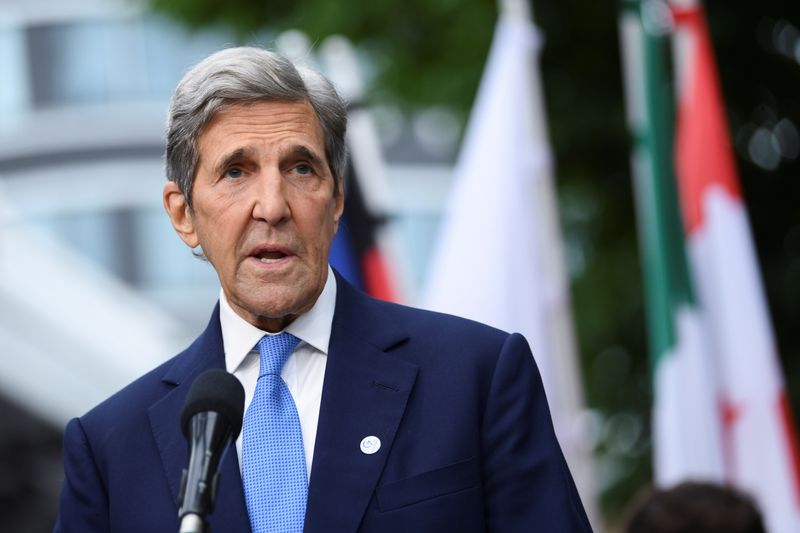U.S. climate envoy Kerry calls on African nations to help curb emissions
2022.09.15 16:26
[ad_1]

© Reuters. FILE PHOTO: U.S. climate envoy John Kerry gives a statement ahead of the meeting of the G7 Climate, Energy and Environment Ministers during the German G7 Presidency at the EUREF-Campus in Berlin, Germany May 26, 2022. REUTERS/Annegret Hilse
By Edward McAllister
DAKAR (Reuters) – African nations must help combat climate change and halt a rise in temperatures that is hitting crop yields and causing flooding and drought in the region, U.S. climate envoy John Kerry told a conference in Senegal’s capital on Thursday.
At the African Ministerial Conference on Environment in Dakar, Kerry acknowledged that the 48 countries of sub-Saharan Africa emit only 0.55% of global harmful emissions, but said that every nation had to pull together in the face of crisis.
“All of us are threatened by emissions – and Mother Nature does not care where those emissions come from,” Kerry told delegates.
“The challenge of the climate crisis comes from the crisis of emissions in every country.”
Twenty countries, including the United States, are responsible for 80 percent of global emissions, Kerry said. Coal, oil and gas – drivers of the American economy – are the worst emitters, climate experts agree.
As the impacts of climate change come into focus, large economies have the difficult task of trying to persuade African nations to curb emissions or reduce investments in fossil fuels at a critical juncture in their own economic development.
Senegal will become a significant oil and gas producer when newly-tapped fields off its Atlantic coast begin producing in the next two years. President Macky Sall has said that ending financing for gas exploration would be a “fatal blow” to emerging economies.
Yet, Kerry’s message comes at a telling moment: Floods killed hundreds this rainy season in Nigeria, Niger and Chad, and millions face severe hunger in the Horn of Africa from drought.
“We cannot afford to repeat the mistakes of the past,” said Kerry. “How you decide to approach the future will have a profound impact, not just on Africa, but on our ability as a planet to solve this problem.”
[ad_2]
Source link








